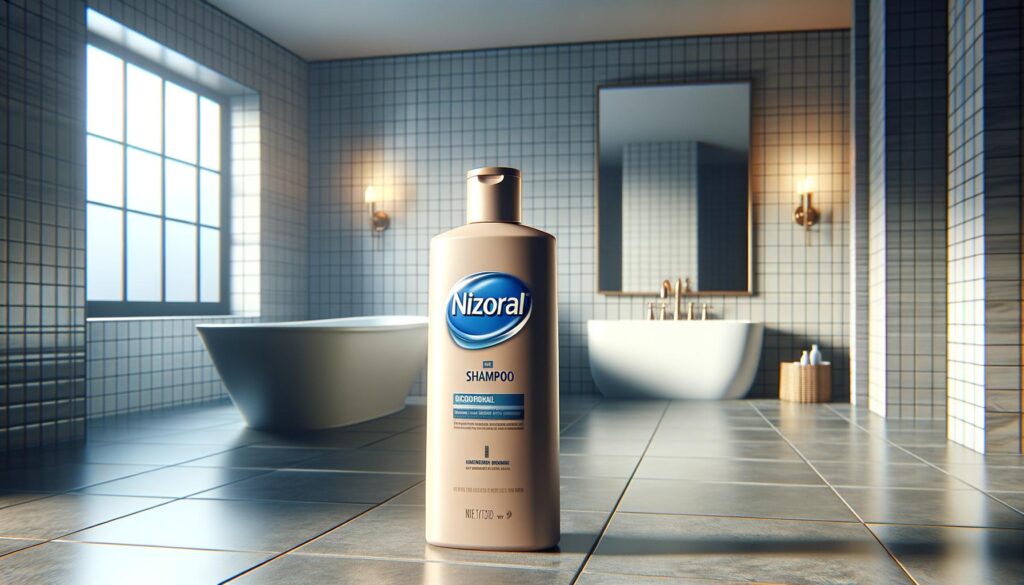Exploring the Benefits and Uses of Nizoral Shampoo

An Introduction to Nizoral Shampoo
Nizoral shampoo stands out in the hair care industry thanks to its specialized formulation aimed at treating certain scalp issues. This antifungal pharmacy-grade shampoo is particularly used for addressing concerns such as dandruff and seborrheic dermatitis. Unlike many cosmetic shampoos, Nizoral contains active ingredients that work to reduce the fungal presence on the scalp, offering relief from itching, flaking, and scaling. Key to its effectiveness is ketoconazole, the active compound with potent antifungal properties.
How Ketoconazole Works
The active ingredient in Nizoral, ketoconazole, plays a vital role in its effectiveness. Ketoconazole is an antifungal agent that targets the underlying cause of dandruff and seborrheic dermatitis—fungus. By inhibiting the growth of these micropathogens on the scalp, Nizoral helps reduce inflammation, peeling, and itchiness. Here’s how ketoconazole works:
- It disrupts the production of ergosterol, an essential component of the fungal cell membrane.
- This leads to the breakdown of fungal cells, effectively diminishing the population of fungi responsible for dandruff.
- The reduction in fungi leads to less scalp inflammation, resulting in a noticeable decline in dandruff symptoms.
Adapting to Different Hair and Scalp Types
One of the strengths of Nizoral shampoo is its applicability across various hair and scalp types. Whether you have oily, dry, or combination hair, Nizoral can blend seamlessly into your routine due to its mild and balanced formula. Here are some considerations for adapting Nizoral effectively:
- For Oily Hair: Maintain a regular washing schedule, as Nizoral can help control excessive oil production.
- For Dry Hair: Use sparingly and consider pairing with a hydrating conditioner to avoid drying out hair further.
- For Sensitive Scalps: Initially use once a week to prevent any irritation, gradually increasing frequency as tolerated.
Integrating Nizoral Into Your Hair Care Routine
Incorporating Nizoral shampoo into your regular hair care routine can be straightforward with a little strategic planning. Here’s a basic guide:
- Replace your usual shampoo with Nizoral during treatment days.
- Allow the shampoo to sit on your scalp for 3-5 minutes to enhance its antifungal effects.
- Rinse thoroughly to ensure all the active compound has been removed along with dirt and oil.
- If symptoms improve, reduce usage gradually, maintaining once-a-week washes to prevent recurrence.
This routine aids in preventing dandruff flare-ups, while allowing your usual, perhaps more moisturizing shampoos, to take care of everyday cleansing needs.
Potential Side Effects and Precautions
While highly effective, Nizoral shampoo is not without its cautionary notes. Though rare, some users might experience slight irritation or changes in hair texture:
- Minor hair loss as an initial reaction to the antifungal action.
- Hair and scalp may become drier, necessitating additional conditioning.
- Redness or swelling on sensitive scalps, which can usually be adjusted by reducing frequency of use.
As with any treatment, it’s crucial to follow provided instructions and consult a healthcare professional if adverse reactions occur.
Conclusion
Overall, Nizoral shampoo presents a valuable option for individuals dealing with persistent dandruff and seborrheic dermatitis. Its unique formulation, driven by the powerful antifungal agent ketoconazole, targets and diminishes the fungal growth responsible for these scalp issues. Whether you have oily, dry, or sensitive hair, adapting Nizoral into your routine could be a beneficial step towards achieving a healthier scalp. As with any medical-grade product, it’s always best to consult a healthcare professional prior to integrating it into your routine for personalized guidance.
